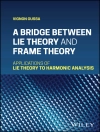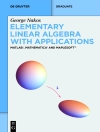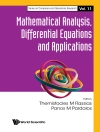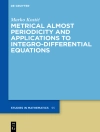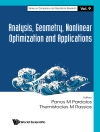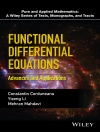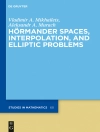An important question in geometry and analysis is to know when two k-forms f and g are equivalent through a change of variables. The problem is therefore to find a map φ so that it satisfies the pullback equation: φ*(g) = f.
In more physical terms, the question under consideration can be seen as a problem of mass transportation. The problem has received considerable attention in the cases k = 2 and k = n, but much less when 3 ≤ k ≤ n–1. The present monograph provides the first comprehensive study of the equation.
The work begins by recounting various properties of exterior forms and differential forms that prove useful throughout the book. From there it goes on to present the classical Hodge–Morrey decomposition and to give several versions of the Poincaré lemma. The core of the book discusses the case k = n, and then the case 1≤ k ≤ n–1 with special attention on the case k = 2, which is fundamental in symplectic geometry. Special emphasis is given to optimal regularity, global results and boundary data. The last part of the work discusses Hölder spaces in detail; all the results presented here are essentially classical, but cannot be found in a single book. This section may serve as a reference on Hölder spaces and therefore will be useful to mathematicians well beyond those who are only interested in the pullback equation.
The Pullback Equation for Differential Forms is a self-contained and concise monograph intended for both geometers and analysts. The book may serveas a valuable reference for researchers or a supplemental text for graduate courses or seminars.
Tabela de Conteúdo
Introduction.- Part I Exterior and Differential Forms.- Exterior Forms and the Notion of Divisibility.- Differential Forms.- Dimension Reduction.- Part II Hodge-Morrey Decomposition and Poincaré Lemma.- An Identity Involving Exterior Derivatives and Gaffney Inequality.- The Hodge-Morrey Decomposition.- First-Order Elliptic Systems of Cauchy-Riemann Type.- Poincaré Lemma.- The Equation div
u = f.- Part III The Case
k = n.- The Case
f ×
g > 0.- The Case Without Sign Hypothesis on
f.- Part IV The Case 0 ≤
k ≤
n–1.- General Considerations on the Flow Method.- The Cases
k = 0 and
k = 1.- The Case
k = 2.- The Case 3 ≤
k ≤
n–1.- Part V Hölder Spaces.- Hölder Continuous Functions.- Part VI Appendix.- Necessary Conditions.- An Abstract Fixed Point Theorem.- Degree Theory.- References.- Further Reading.- Notations.- Index.



